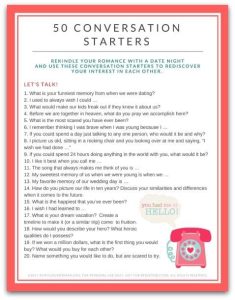Navigating the world of dating can often feel like venturing into uncharted waters, where the thrill of new connections mingles with the uncertainty of first impressions. As we embark on these initial encounters, it’s easy to get swept away by the excitement of potential romance. Yet, beneath the surface of charming smiles and engaging conversation, subtle currents of control may lurk, waiting to disrupt the delicate balance of a budding relationship. Understanding how to recognize controlling behavior from the outset is not just a skill but a compass that can guide us toward healthier connections. In this article, we delve into the subtle signs and nuanced cues that can reveal controlling tendencies on a first date, empowering you to navigate the dating world with confidence and clarity.
Identifying Subtle Red Flags Early On
When you’re meeting someone for the first time, it can be challenging to distinguish between nervous quirks and genuine controlling tendencies. However, there are subtle signs that can hint at underlying control issues. Pay attention to their conversational style. If they frequently interrupt or dismiss your opinions, it might indicate a lack of respect for your perspective. Notice if they try to dominate the conversation, steering it back to themselves or their preferences, without showing genuine interest in your thoughts or feelings.
- Decision-making: Are they insistent on choosing the venue or ordering for you without asking?
- Personal boundaries: Do they probe too deeply into your personal life or ignore your comfort zones?
- Listening skills: Do they actively listen, or are they simply waiting for their turn to speak?
These behaviors, though subtle, can be early indicators of someone who may struggle with sharing control. It’s crucial to be aware of these signs and trust your instincts, ensuring your comfort and autonomy remain a priority.

Understanding the Dynamics of Conversation Control
In the intricate dance of first date conversations, the balance of dialogue often reveals underlying dynamics. Spotting signs of conversational control early can be crucial in understanding the nature of your potential partner. Here are some subtle indicators to watch for:
- Interruption Frequency: Does your date frequently cut you off mid-sentence? Consistent interruptions might indicate a desire to dominate the discussion, reflecting a lack of interest in your perspective.
- Topic Steering: Notice if your date persistently redirects the conversation back to themselves or topics they prefer. This can suggest an intention to maintain control over the narrative.
- Question Avoidance: Pay attention to how they respond to questions. A controlling individual might evade answering personal inquiries while probing into your life.
- Nonverbal Cues: Sometimes, control is exerted through body language. Watch for signs like dismissive gestures, eye rolls, or a dominating posture that may signal an attempt to overshadow your presence.
Being aware of these behaviors can help you gauge the dynamics at play and decide if this is a relationship worth pursuing.

Decoding Body Language for Hidden Intentions
Understanding body language can be a powerful tool in discerning the underlying intentions of your date. Pay attention to non-verbal cues that might indicate a tendency towards controlling behavior. For instance, observe their posture: a consistently dominant stance, such as leaning forward aggressively or taking up excessive space, might suggest an attempt to assert control. Additionally, watch for micro-expressions like tightly pressed lips or fleeting frowns when you express opinions or make decisions.
Consider the following subtle signs:
- Eye Contact: An intense, unbroken gaze can be charming, but if it feels piercing or uncomfortable, it might be a method of exerting control.
- Gestures: Overly animated hand movements or finger-pointing could indicate a need to dominate the conversation.
- Touch: Invasive or uninvited physical contact, like guiding you with a hand on your back, might be an attempt to control the dynamic.
Trust your instincts when interpreting these signals. While body language is not definitive, it can provide valuable insights into a person’s character and intentions.

Trusting Your Instincts While Staying Objective
In the dance of dating, balancing between trusting your gut feelings and maintaining an objective outlook can be tricky. Instincts often serve as a natural compass, hinting at subtle cues that may otherwise go unnoticed. Yet, it’s crucial to weigh these instincts against observable behaviors to avoid jumping to conclusions. Consider these key aspects:
- Listen to Your Inner Voice: If something feels off, don’t dismiss it outright. Your instincts might be picking up on non-verbal cues or inconsistencies in their words and actions.
- Stay Grounded in Facts: Observe their behavior carefully. Are they constantly interrupting you or dismissing your opinions? Such actions can indicate a controlling nature.
- Ask Open-Ended Questions: Gauge their responses. Do they seem genuinely interested in your thoughts, or do they steer the conversation back to themselves?
By merging intuition with an objective assessment of your date’s behavior, you can form a clearer picture of their personality. This dual approach helps ensure that you remain open-minded yet discerning, allowing you to navigate the complexities of first impressions with confidence.








